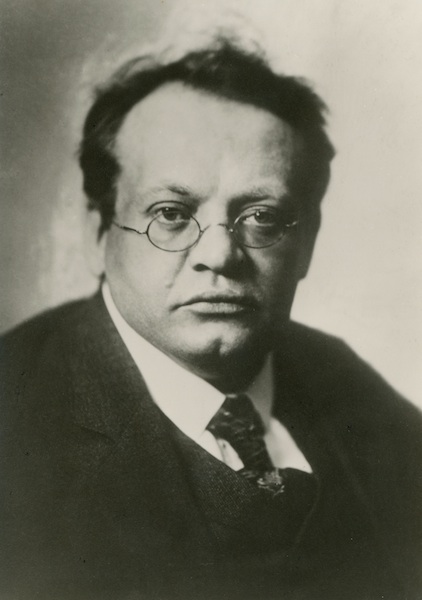In the rich tapestry of late Romantic and early Modern music, few threads are as intricately woven as that of Max Reger. Born on March 19, 1873, in Brand, Bavaria, Johann Baptist Joseph Maximilian Reger would grow to become one of the most prolific and controversial composers of his time.
Picture a young Max, his fingers dancing across the keys of an organ in a small Bavarian church, already displaying the prodigious talent that would define his career. From an early age, Reger was immersed in music, with his father and uncle both serving as music teachers. This early exposure laid the foundation for his future musical endeavors.
Reger’s formal musical education began in earnest when he studied with Hugo Riemann, a renowned music theorist, from 1890 to 1893. Under Riemann’s tutelage, Reger developed a deep appreciation for counterpoint and the works of Johann Sebastian Bach, influences that would shape his compositional style throughout his career.
As Reger’s skills matured, he began to forge his own unique musical voice. His compositions were characterized by their dense, complex harmonies and intricate contrapuntal structures. He was a master of combining the rich harmonic language of late Romanticism with the strict formal structures of the Baroque era, creating a style that was both innovative and deeply rooted in tradition.
Reger’s output was staggering in both its quantity and variety. He composed works for nearly every genre, from massive organ pieces to intimate chamber music. His organ works, in particular, are considered some of the most challenging in the repertoire, pushing the boundaries of what was technically possible on the instrument.
One of Reger’s most significant contributions to music was his revival of the variation form. His “Variations and Fugue on a Theme by Mozart,” Op. 132, is a tour de force of compositional technique, showcasing his ability to take a simple theme and transform it into a complex, emotionally rich musical journey.
Despite his prodigious talent, Reger’s career was not without its challenges. His music was often criticized for being overly academic and difficult to understand. Critics accused him of prioritizing technical complexity over emotional expression, a charge that Reger vehemently denied. He famously quipped, “I am not a machine for writing fugues,” emphasizing the emotional depth he sought to convey in his music.
Reger’s personal life was equally tumultuous. He struggled with alcoholism for much of his adult life, a battle that undoubtedly took its toll on both his health and his work. Despite these challenges, he maintained an incredibly rigorous work ethic, often composing for hours each day.
In 1911, Reger was appointed as the director of the court orchestra at Meiningen, a position that allowed him to further develop his skills as a conductor and to promote his own works. During this time, he composed some of his most ambitious orchestral pieces, including the “Four Tone Poems after Arnold Böcklin” and the “Mozart Variations.”
Reger’s influence extended beyond his compositions. He was also a respected teacher, holding positions at the Leipzig Conservatory and the Munich Academy of Music. His students included notable composers such as Joseph Haas and George Szell, ensuring that his musical legacy would continue through the next generation.
Tragically, Reger’s life was cut short at the age of 43. He died of a heart attack on May 11, 1916, in Leipzig, leaving behind a vast body of work that continues to challenge and inspire musicians to this day.
In the years following his death, Reger’s music fell somewhat out of favor, overshadowed by the more radical innovations of composers like Schoenberg and Stravinsky. However, in recent decades, there has been a renewed interest in his work, with musicians and scholars recognizing the unique place he occupies in the transition from Romanticism to Modernism.
Today, Max Reger is remembered as a composer who bridged worlds – the old and the new, the emotional and the intellectual. His music, with its dense textures and complex harmonies, continues to challenge performers and listeners alike. Yet beneath the technical brilliance lies a deep wellspring of emotion, waiting to be discovered by those willing to delve into its depths.
Reger’s legacy is not just in the notes he wrote, but in the way he pushed the boundaries of what was possible in music. He demonstrated that it was possible to honor tradition while still being innovative, to be intellectually rigorous without sacrificing emotional impact.
As we listen to Reger’s music today, we are transported to a world of rich harmonies and intricate counterpoint, a world where the past and the future of music coexist in perfect balance. In the grand symphony of musical history, Max Reger’s voice remains unique and powerful, a testament to the enduring power of his musical vision.

